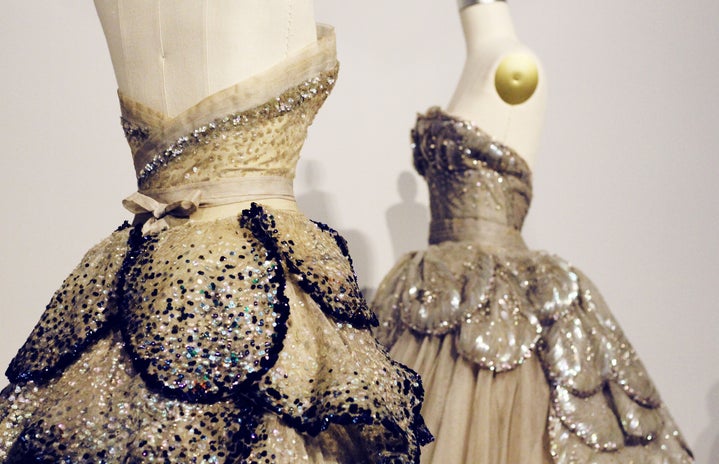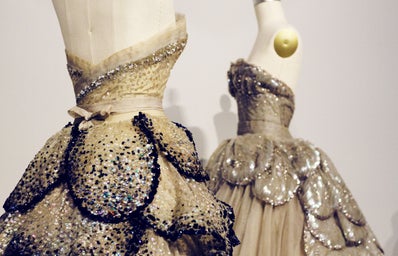Back in 1948 when fashion publicist Eleanor Lambert organized the Met Gala for the first time, no one had any idea that it would catapult to being the keystone event in the world of fashion in the years to come. While May 1st had many of us glued to our phone screens with our eyes peeled to find out who showed up wearing what to the annual benefit, the history behind the prestigious Met Gala is vastly unknown to the masses.
The Met Gala or, formally, The Costume Institute Gala was started in 1948 to mark the opening of the then-newly founded Costume Institute’s annual exhibit and included a dinner with tickets to the event priced at 50 dollars each. Today, a single ticket at the Met dinner table is appraised at 50,000 USD or 40 lakhs INR and sees famous personalities from different guilds of life dressed up to their nines at “Fashion’s Biggest Night“. Although initially, the Met Gala was like any other beneficiary held in support of New York’s charitable institutions, Diana Vreeland’s introduction to the Institute as a consultant changed its face and helped it evolve into the glamorous and global affair that it is today. The Met Gala, which is hosted on the first Monday of May each year, saw its first themed event in 1973 under the patronage of Diana, with The World of Balenciaga being the first theme ever. Since then, The Gala has had a variety of themes from Manus x Machina: Fashion in an Age of Technology(2016) to In America: A Lexicon of Fashion(2021), each raising its own controversies and each providing jaw-dropping looks for the fashion industry to fawn after.
This year’s Met theme: Karl Lagerfeld: A Line of Beauty, however, was controversial in and of itself even before the Gala had taken place, and honestly? There are quite a few reasons for it.
While no one can deny that the German fashion designer was a powerhouse when it came to the fashion industry and made innumerable contributions, especially in his role as the creative director of Chanel, right up to his death in 2019; it would also not be wrong to say that the creative director was not the most tolerable and decent human.
With counts of Islamophobia, fatphobia, and misogyny stitched on his impeccable detachable white collar, Lagerfeld left behind a turbulent legacy tainted by hurtful sentiments that leave a bad taste in your mouth when explored in detail. Lagerfeld often let his sharp tongue run as he dealt out unsolicited critique and called women like Adele ‘too heavy’ and made bewildering claims that ‘anorexia was not as dangerous as junk food and television’. He even went so far as to say, “No one wants to see curvy women”. Well, guess you were wrong about that, Karl.
Lagerfeld might have been an iconoclast, but his views on parenthood were majorly troubled and double standard, claiming that if he were a woman, he would love to have kids, but he didn’t believe in that for men; highlighting the toxic patriarchal stronghold behind his ideas. In a world where everyone is fighting for sustainability, Karl’s comment that the “discussion of fur is childish”, made a lot of heads turn and earned him some serious backlash. However, Karl Lagerfeld’s most problematic stance was perhaps his complete disdain and disregard for the #MeToo movement, and he went so far as to even say he was “fed up with it”. He openly criticized the models who raised their voices, flat out saying that if you are to become a model you should be prepared to get ”your pants pulled about” or else you should ”join a nunnery”. He sent flowers to accused rapist and friend, Dominique Strauss Kahn, calling ‘women’ the problem when it came to the allegations against him, and even defended stylist Karl Templer, who was accused of sexual misconduct by multiple models.
However, despite him being a sketchy and downright offensive power figure, the world still remembers Karl Otto Lagerfeld for his artistic brilliance and as a visionary. As the author of Anna: The Biography, Amy Odell pointed out, “[Fashion] is an industry built on elitism and illusion and people don’t want to acknowledge fault lines. It is uncomfortable to talk about these things and that makes people not want to buy into the fantasy that is fashion”. And therefore, for the sake of elitist creativity and commercial interests, Karl Lagerfeld’s creations will continue being in the spotlight and continue being rejoiced and celebrated, regardless of the views of the hateful little man who brought these creations to life. In the words of Vanity Fair editor, Emily Kirkpatrick, “Fashion doesn’t care at the end of the day, fashion has never cared”.


